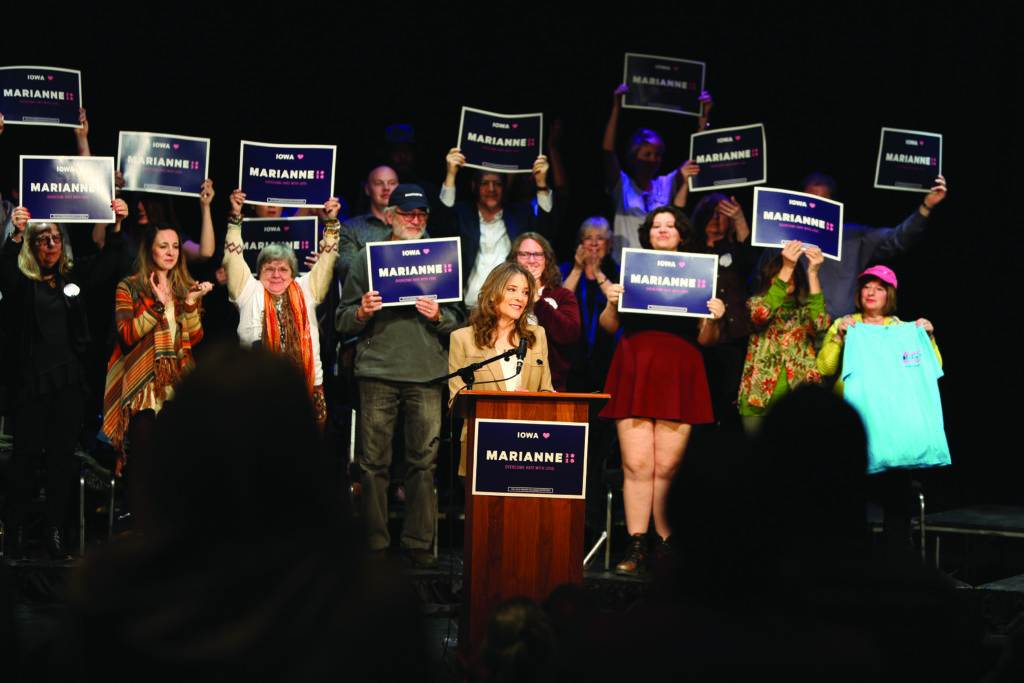
The First (Out of the Closet) Yogi to Run for U.S. President
Born in Houston in 1952, Marianne Williamson was raised in the Judaic tradition of tikkun olam, whose basic tenet is “Repair the world.” With a voracious appetite for spiritual understanding, she studied comparative religion and philosophy. Her discovery of A Course in Miracles, a self-study program of spiritual psychotherapy, led to a successful 35-year counseling and writing career. In 1992, with Oprah Winfrey’s support, her first book, A Return to Love, became the fifth most-sold book in the United States.
A long time spiritual-political activist, Williamson deeply trusts God’s unlimited capacity to solve social problems. In 1983 she created Project Angel Food, a meals-on-wheels service that has since served 11 million homebound people with AIDS. Compelled in part by the sad recognition that government has devolved into little more than a system of legalized bribery, she decided to run for the highest office. Her courageous candidacy has garnered mass attention as she is the first yogi-of-sorts to speak to the political establishment—a watershed moment in the eyes of many, including Common Ground readers who similarly resonate with such plain spiritual philosophy.
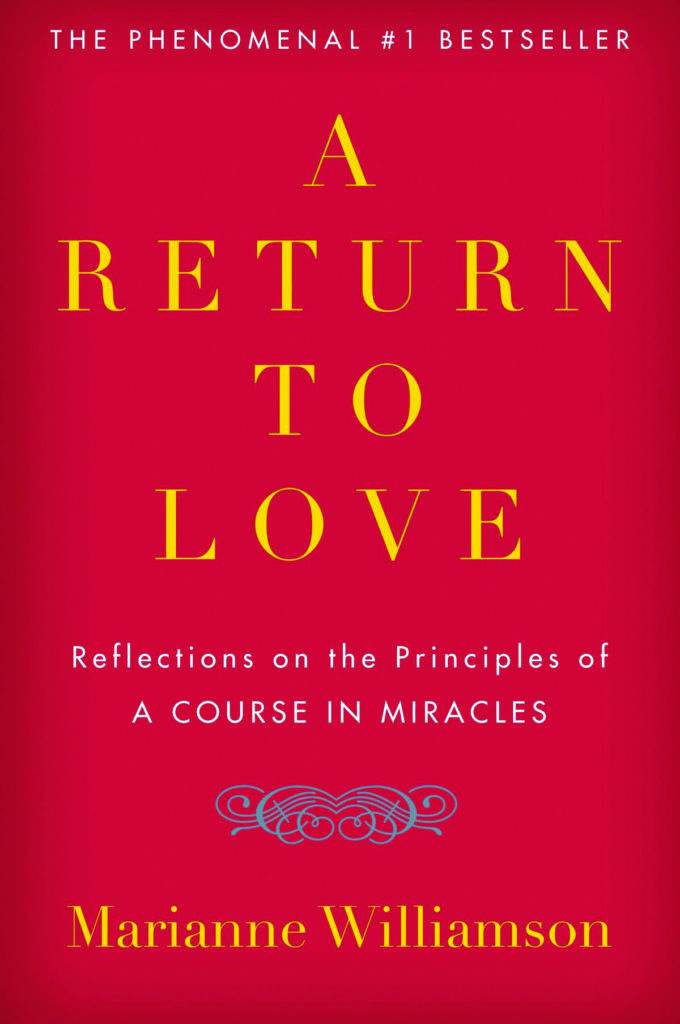
We spoke with Marianne for our Women issue to discover that her fundamental values—Take care of the babies, take care of our home—are the core building blocks of her political agenda. In her quest to speak simple truth to power she learned up close that presidential politics is not for the faint of heart. Nevertheless, she perseveres on internationally televised debate stages and rallies. Her legacy, we predict, is that she has forever broken a barrier and thus engaged an often apolitical swath of society. More importantly we predict that she’s paved a new acceptance of such commonsense idealism—something that will inspire a future cadre of awakened political leaders.
Common Ground: Six years ago we spoke and got the scoop about your run for Congress. Now you’re running for president of the United States. What prompted this decision?
Marianne Williamson: I can’t say I know what prompted it, except in a larger sense. Donald Trump’s election changed everything, not just for me but for many people. None of the decisions that any of us made once he was elected came without that reference. Millions of people consciously or unconsciously were asking “How can I help?”
Many in our so-called yoga tribe are elated to witness someone actually espousing their values on a national platform. It had seemed impossible, so congratulations on breaking the barrier. What’s it been like for you in the trenches?
It’s part exhilarating, part brutal. After the second debate I was getting a lot of attention and clearly somebody didn’t like that. Three days after the debate some vicious smears started appearing. That’s been pretty rough. I’ve had a dignified career for the last 35 years. To see myself viciously mischaracterized has been difficult but hey, this is serious business, running for president. I didn’t think it was going to be a walk in the park. At a certain point, you simply cross the Rubicon and you deal with whatever. When people are supporting you, spending their energy and their money and their time, you owe it to them not to indulge yourself emotionally any more than you have to. So yes, there have been some difficult moments—but attitudinally I just throw water on my face, tell myself to stop whining, get over myself, get up, and keep on doing what I’m doing.
Takes courage. Is it your faith that makes you fearless—like being on a mission from God?
Let’s put things in perspective. There are women in this world who, if they were to criticize their government in a fraction of the way I criticize mine, would be put in prison, possibly tortured, possibly killed. We have a very low bar in our culture when talking about courage and fearlessness. I’m very aware of how fortunate I am to live in a country where I’m able to run for office, to say whatever I want. Yes, I might be mocked. But in other countries it would be far worse. One of the reasons I’m doing this is because I love freedom. I know that sounds like a cliché but it’s true. I know how
important it is to the world, that there’s a place where we even try to allow people to soar. So no, I don’t think of myself as courageous or brave, I just think of myself as unwilling to be silent at such a time as this.
Like all of us you’re following your spiritual path, but did you hear a voice that said, “Go! Enter the viper pit of presidential politics”?
If you have an internal decision-making process, it’s the same process no matter what the decision. You take in all the data but then your gut, your heart, your God is the decider.
Spiritual audiences are typically apolitical. Why? Do you feel your mission is partly to push people to be externally focused and politically aware?
I am Jewish and Jews are not apolitical. Tikkun olam is a basic tenet of Judaism; it means “to repair the world.” Jews know all too well how politics affects our lives. So I’ve never been comfortable with this cultural spiritual niche that has trended so apolitical. For one thing, it’s not very spiritual. There’s no serious spiritual or religious path that gives anyone a pass on addressing the suffering of other sentient beings. All this “false positivism” stuff isn’t spiritual at all, really. There’s a difference between transcendence and denial.
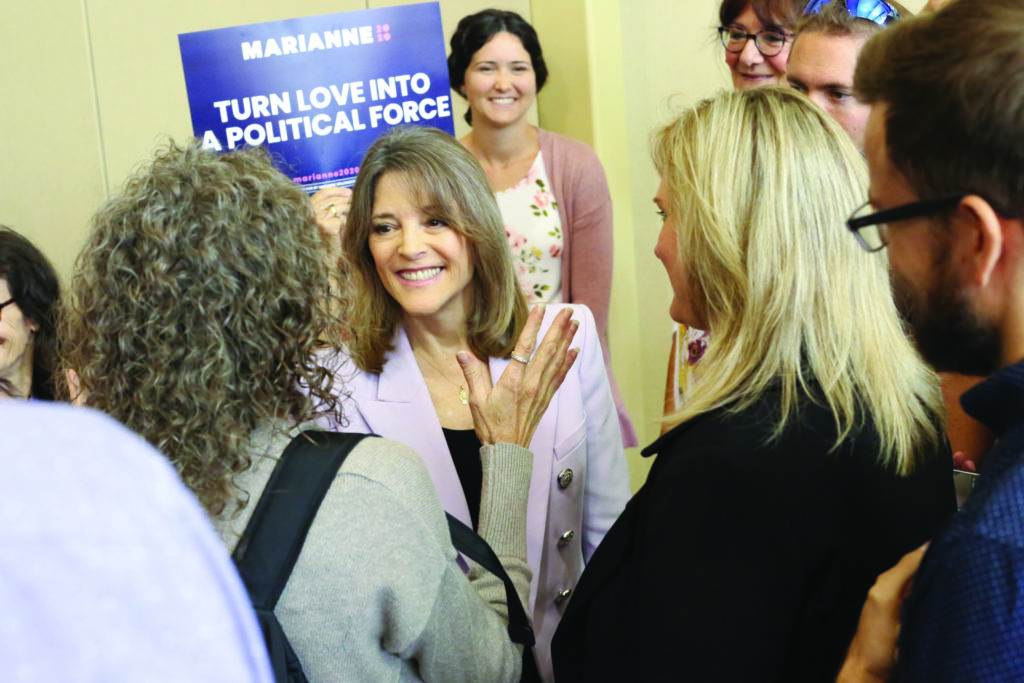
Hasn’t there been a longstanding schism between marchers and meditators, so to speak—two different camps?
Not for my generation. When I was in college, we read Alan Watts and Ram Dass in the morning and went to Vietnam antiwar protests in the afternoon. There weren’t two separate groups then. The cultural and political and spiritual and sexual fervors of the ’60s and ’70s were all mixed together. It was only after that time that the two camps separated. I grew up at a time when there was a very easy, amicable marriage between what we’d now call the meditators and the marchers. And even today, don’t kid yourself; there were a lot of meditators at that Women’s March on Washington. For me personally, the marriage of the two has always been my sweet spot. I taught A Course in Miracles and I founded peace organizations; I wrote books about spirituality and I founded AIDS organizations. The two never were separate for me. I simply think you have to try to practice what you preach, or what does it all mean?
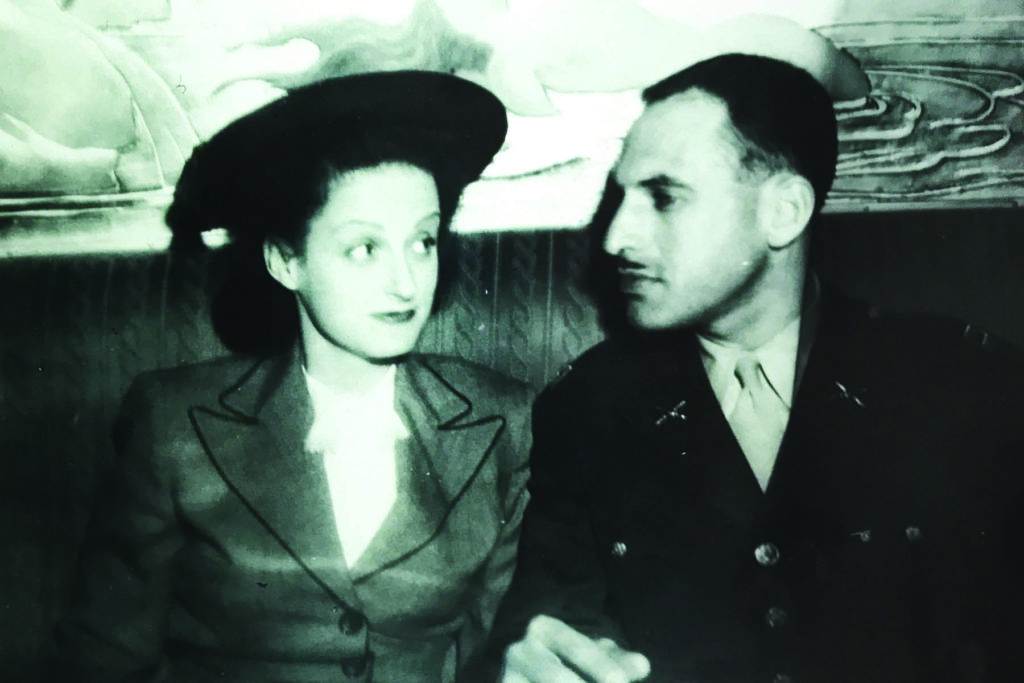
What was it like growing up Jewish in Houston in the ’50s and ’60s? I imagine a discrimination that taught lifelong lessons…
No. The kind of anti-Semitism my parents’ generation had experienced had pretty much passed by the time I was growing up. I came from a large family and there was a strong Jewish community in Houston, so I didn’t experience anti-Semitism growing up. I knew about it, I heard about it, I was aware of it…but I wasn’t personally affected by it. I knew about World War II and the Holocaust, but most of the stories I heard were things of the past. But then I grew older, and with my name being Marianne Williamson, I would hear people say things around me that I don’t think they would have said if my name had been Schwartz or Steinberg. So yeah, I began to understand things more deeply as I got older.
[laughs] Funny how that works!
No kidding.
Was religion important in your family?
God was certainly important. Not to be questioned. But Judaism is more than a religion—it’s a people. You’re born a Jew, you die a Jew. It’s your ethnic identity. So yes, I would say that my Jewish identity was very important when I was growing up. It’s an essential identity, like being Black or being Latino or being anything else.
Could you briefly explain A Course in Miracles and how you migrated there?
A Course in Miracles is a self-study program of spiritual psychotherapy. It’s not a religion. It refers to itself as a psychological mind training—a self-study course in forgiveness. It’s a psychological training in giving up a fear-based way of looking at the world and replacing it with love.
It’s not difficult, really, but it’s very different. What’s difficult is getting over our resistance to doing it. What’s difficult is giving up the judgmental attack thoughts that dominate so much of our thinking. The consciousness that dominates the world is so full of fear, and the thinking of love is opposite of that. It’s like training your mental muscles to see the world in a different way, to think that everything that’s not love is a call for love, to think that love is real and that everything else is a product of the mind that doesn’t need to stand forever.
Were such views pooh-poohed in politics?
Not if you understand history! The two most powerful political movements in the 20th century were Gandhi and the Indian Independence movement, and Martin Luther King Jr. and the American civil rights movement. Both were based on the philosophy of non-violence as first articulated by Gandhi: that self-purification precedes the most powerful political activism, and love heals political relationships as much as it heals personal ones.
What kind of insults have you borne, specifically?
I don’t think the point is what kind of insults I have borne. The point is that politics can be a dirty business. It’s not about me. Politics is rough. I didn’t go into it thinking it was going to be a walk in the park and it hasn’t been, but none of that is important. “She’s a crystal lady… she’s woo-woo… she’s anti-science… she’s a lightweight thinker.” Give me a break.
What’s important is what I’m saying to the American people. What’s important is that we have lost a sense of public morality. What’s important is that our public policy is dangerously divergent from the goodness in our hearts. What’s important is that one percent of Americans own more wealth than the bottom 90 percent, leaving millions and millions of people in daily, chronic economic anxiety. What’s important is that millions of American children live with chronic trauma. What’s important is that our national security agenda is based more on short-term profits for defense contractors than on a plan for a peaceful planet. What’s important is that we have 12 years to reverse climate change. What’s important is that we must address racial healing at a deeper level.
What’s important is not what kinds of insults have been aimed at me. That is profoundly unimportant in the larger sense of things.
In the larger metaphysical picture how do you frame the Trump phenomenon?
Trump didn’t create our biggest problems; Trump was created by our biggest problems. Once we started turning the businessman into a god, it was probably inevitable that the most perverted, distorted image of one would appear among us.

For decades, we’ve allowed an amoral economic system to take precedence over a proactive demand for democracy and humanitarian principles. So why should we be surprised that the exact embodiment of such a worldview would emerge?
If you don’t tend to your marriage you have no good reason to be shocked if your spouse leaves you. If you don’t tend to your health, you have no reason to be shocked later if you get diagnosed with an illness. If you don’t tend to your business, you have no reason to be shocked if the business goes under. We have not tended to our democracy. We have not proactively cultivated democracy—not to even mention ethics and goodness and love and mercy and compassion—at the center of our political functioning and our collective behavior. We thought, what exactly, that those things are a done deal and would drive themselves? That was very naïve of us. And Trump has certainly been an awakening.
Every time somebody says “Oh, I’m not political…” I say, “Everything is political.” If you say, “I’m not political” and you didn’t vote because you’re “not political”— you sure did vote. You voted for the people who are absolutely thrilled that you didn’t vote. If you’re not proactively casting the light, then you are partly responsible for the darkness. If you don’t wake up in the morning and dedicate your life to love and service, then that same energy will be dedicated to neurosis and pathology. The mental energy is going to go somewhere. That’s true in our personal lives and it’s true in
our collective experience.
With all the dirty backbiting, how can you blame a sensitive spiritual aspirant from running far away?
Oh, please. Let’s not use sensitivity or spirituality to justify laziness, brand protection, and lack of courage.
I’m dumbfounded at how our society not only condones but actually rewards narcissistic behavior.
We are in a de-evolutionary period. We’ve been devolving in some of the ways you just described. But a lot of people are now looking around saying “Oh, my God, what have we wrought?” That’s a good thing. There’s a healthy horror that people are feeling today. We have to face that horror to find the inspiration to change the conditions that produced it.
In our bubble there’s evidence to suggest that we are evolving at light-speed. What might precipitate a mass wake up?
If Trump being president doesn’t wake you up, then you took some wicked sleeping pill.
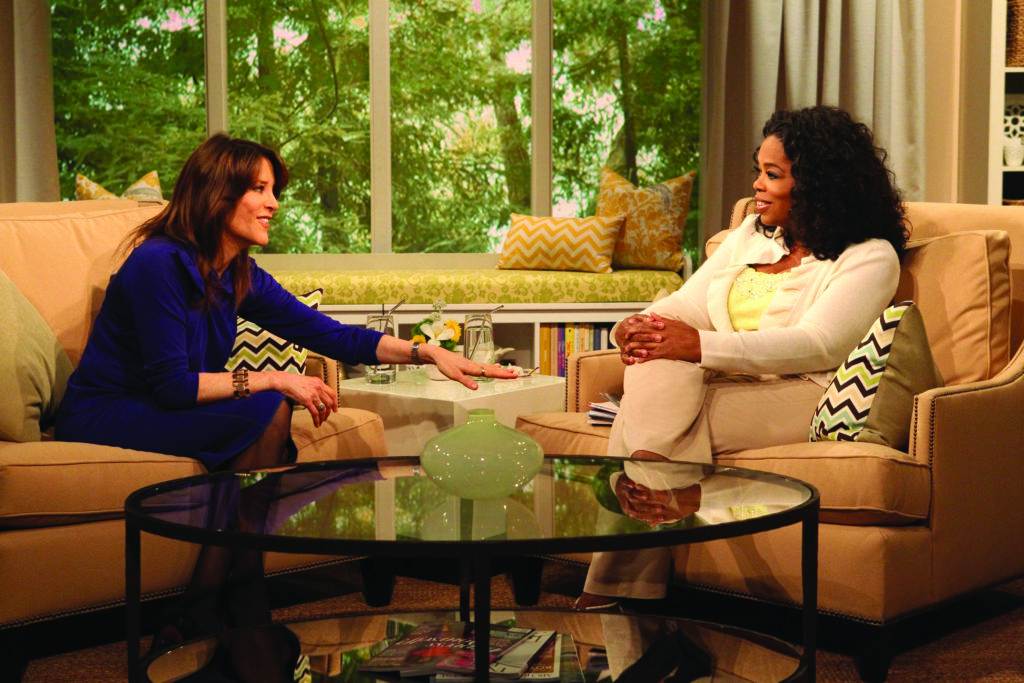
I’m sensitive to the bubble we inhabit and try to be especially open-minded with everybody, including Trump supporters. But when leaders such as Brazilian president Bolsonaro direct their unconsciousness on Mother Earth, my heart breaks. The line is crossed.
Well, I have some bad news for you. If you think things are bad now, give this president a second term. The prospects are chilling.
Let’s use the environment to start talking specifically about some of the platforms of a would-be President Williamson.
We need a World War II level mass mobilization to reverse climate change. We have to do that, because the alternative is nothing short of existentially threatening. This isn’t a left versus right issue; it’s a survival versus mass extinction issue. We’re talking here the prospect of social collapse such as we have not seen in the modern era. Everything from mass starvation and food shortages to economic crises, huge swaths of land uninhabitable because of the heat, inability to grow food, and millions and millions of global climate refugees. We. Must. Not. Let. This. Happen.
We need to shift from a dirty economy to a clean economy, sequester carbon, reforest, develop alternative sustainable systems of energy and transportation, deal with animal factory farming. Pass a Green New Deal. All of those things are critically urgent. They are the only path to a survivable future. It goes so far beyond something like just rejoining the Paris Accords, which of course we need to do. It goes beyond making sure a world class environmental scientist is the head of the EPA, which of course we need to do. We need to enroll the American people. This is the reason I believe someone like myself should be president—because the job entails enrolling more than 300 million people in an effort that we cannot accomplish if we are opposed to one another.
We didn’t fight World War II as Democrats or Republicans; we fought it as Americans. Everybody understood who the enemy was, and it wasn’t each other. We have a common enemy here: an ever- accelerating climate crisis. We can deal with this. We can lead the world in dealing with this. But we need a shift in our collective consciousness to do it.
Could you describe what your proposal is for a Department of Peace?
Right now we spend 760 billion dollars or more on our military budget. We spend 40 billion dollars on our State Department. The State Department’s mission is diplomacy, development, and mediation. Within the State Department budget there’s 17 billion that goes to USAID (United States Agency for International Development)—for long-term development and humanitarian assistance.
Also, within that 40 billion, less than one billion is spent on peace-building agencies. Peace-building is a very interesting concept because peace-building skills are every bit as sophisticated and represent every bit as much expertise and courage as do military skills.
There are four factors which when statistically present indicate there will be a greater presence of peace and a diminished incidence of conflict. Those our things are 1) expanded economic opportunities for women, 2) expanded educational opportunities for children, 3) reduced violence against women, and 4) the amelioration of unnecessary human suffering. Those things could be likened to preventative medicine within the body politic.
Yet right now our national security agenda is like an old allopathic model of healing the body. You don’t cultivate health, you just wait till symptoms arise and then you seek external remedies to eradicate or suppress the symptoms. We’ve moved past that in how we look at the body and we should also look past that in how we see society. Sickness is the absence of health; health isn’t the absence of sickness. And war is the absence of peace; peace isn’t the absence of war. We need an integrative politics now, to best understand how we should move forward.
Our national security agenda is based primarily on endless preparation for war, which has nothing to do with a proactive agenda for peace. You can’t just back yourself up into peace. My plan for a Department of Peace means bolstering the already existing peacebuilding efforts and agencies within the government, to the point where they are equal partners with the military. And just like we have war games, if I am president we will also have peace games. We will declare peace, domestically and internationally. That is one of the pillars of the campaign. And just like we have a military academy we will have a peace academy, where people actually graduate from a four-year curriculum in peace studies.
This being our Women issue, how does your being a woman bear on your political messaging?
Simple. Take care of the babies, take care of our home. Take care of the babies, take care of our home. Take care of the babies, take care of our home.
In your platform you propose a Department of Children and Youth.
Our country ranks at or near the bottom on almost every indicator regarding governmental policies toward children. Far too many children fall through the cracks; 13 million are hungry, and millions go to school in classrooms that don’t even have adequate supplies to teach a child to read. When children cannot read by the age of eight their chances of high school graduation are drastically diminished and their chances of incarceration are increased. In the richest country in the world, withholding education from a child is a passive form of oppression. It’s absurd the way we base
our educational funding on property taxes! That means that if a child comes from a well-to-do neighborhood, then his or her chances of a very fine public school education are excellent. But if not? Then not.
Millions of our children are traumatized by violence in their homes, their neighborhoods, and their schools. Millions live with chronic trauma and PTSD rivaling that of war veterans. And all of that must change. We need a massive realignment of investment in the direction of our children. I want a US Department of Children and Youth to co-ordinate all programs involving children, providing everything from community wraparound services to trauma-informed education to nutritional services to mindfulness in the schools. Every school in America should be a palace of learning, culture, and the arts. We should have a whole-student approach to education, aimed at preparing students not only for the skills and jobs of the 21st century but also for 21st century democracy. Children deserve to thrive, and we’re responsible for helping them do that.
As a woman how did you experience the Hillary Clinton candidacy?
I was a Bernie supporter, not because I had anything against Hillary but just because my politics were more like Bernie’s. After the primaries were over I certainly switched over and supported her. I think people are having a delayed reaction to the misogyny in that campaign. I remember watching the debate where Trump walked so menacingly behind Hillary and I remember remarking to someone, “That’s violence against women right there!” I still can hardly believe that any woman could have watched that and not recognized the subtle violence for what it was.
How do you view some of the other female Democratic candidates? We can name them, starting with Tulsi Gabbard.
I love Tulsi. I’ve gotten to know her a bit. She’s great. Kirsten Gillibrand was also very nice to me when she was on the campaign. And I adore Elizabeth Warren.
Amy Klobuchar?
I don’t know Amy or Kamala [Harris].
There’s optimism in our circles about Senator Warren.
I love Elizabeth. She’s great.
Let’s talk about some of the other platforms, like your reparations plan for example.
Whether you’re a country or an individual, you can’t have the future you want if you’re not willing to clean up the past. Racism is America’s original character defect, and both reparations for slavery and some kind of reparations for Native American justice are necessary if we’re to have the future we wish. We need a season of moral repair, and that will not be accomplished with just an economic policy here or a climate policy there. We need a much more fundamental pattern disruption, a more integrative politics that speaks to many levels of our dysfunction. That’s why reparations are different from simply race-based policies.
Race-based policies can be a continuation of the same paternalism that got us here. “I messed with you and now I’m going tell you how I’m going to fix it.” Reparations are more than that; they carry moral force. They go beyond economic restitution. They carry an inherent mea culpa—an acknowledgement of a wrong that has been done, a debt that is owed, and the willingness on the part of a people to pay it. That accomplishes more than just economic restitution; it accomplishes a psychological, emotional, and spiritual change as well.
I know Oprah Winfrey is a big Marianne Williamson fan. What role has she played in your life?
Oprah was very generous to me in the beginning of my career and I’ll always be extremely grateful to her.
If you don’t become president of the United States what do you hope will be the legacy of your candidacy? What would you have achieved?
We’re having conversations no one else is having, about children and race and peace and more. A presidential campaign is a field of energy like no other, and many people are hearing us. The more people share in a conversation, the more people share an idea, the stronger it becomes. So whether the American people wish to turn those ideas into public policy remains to be seen, but as long as I’m running then they have the option. As long as my heart leads me to share these ideas, as long as people keep showing up to hear me and support the campaign, then I’m here.
Besides becoming president, what’s your greatest personal, spiritual aspiration?
I just pray to become the woman that I’m capable of being—and to be happy. Those are actually the same thing of course. I’m too old to think that circumstances determine our happiness, so I’m past dreaming that this or that circumstance would make too much difference.
How do you define consciousness and how does this consciousness become the operating system in your life?
The consciousness that matters most is love. In fact, it’s the only Real consciousness. Everything else is maya—illusion. I struggle just like everyone else with the constant temptation to perceive without love. I assure you: A presidential campaign gives you plenty of opportunity, plenty of temptation to perceive without love! It calls for a lot of psychological and emotional discipline not to be triggered by pretty much everything that goes on.
Do you still think about the goal of becoming enlightened?
I think that’s what we’re doing here on this earth. It’s all that’s going on.
What are some of your great joys?
My great joys have been and are love.
What particularly ticks you off?
The things that cause me outrage and heartbreak are the same things that cause everyone else outrage and heartbreak. How are we letting children starve? What are we doing to the earth? How do we cast each other out of our hearts so easily?
What do you make of Trump’s conversation with the Ukrainian president? Has his Teflon run sheer with this one?
I’ve made a statement in support of the impeachment inquiry. It gives me no joy to note the danger that he poses to our democracy.
Who’ve been some of the big heroes?
My father. And my mother. Martin Luther King Jr. Gandhi. Jefferson, Lincoln. Susan B. Anthony.
Gloria Steinem?
I don’t know if I’d call her a hero. But I greatly admire her. She’s been a role model to me, that’s for sure.
What women do you consider exemplary in the area of love?
Elizabeth Barrett Browning.
Might you share a message to younger readers, particularly young women?
I feel such anguish for young women who haven’t had their babies yet, who worry about the drinking water and the condition of the soil, the future of the earth, the sale of pesticides. I understand their fear and I have great respect for those who are awake, participating in the revolutionary impulse that will turn all this around.
Can you share a final message to Common Ground readers, many of whom are longstanding fans?
There are so many more of us who love than who hate in this country, but the lovers have got to step up now. We need the visionaries, the lovers, the artists, the yogis, the scientists, the teachers, the healers to enter the political fray now. We can’t just stand on the sidelines. It’s time. Rehearsal is over.
I’m very grateful to all the people supporting my campaign—and to those who are considering supporting it. That support is everything. Money is unfortunately everything in a political campaign because it pays for the infrastructure without which it can’t happen. Money in politics is the cancer underlying all the cancers in our country today, and public funding for federal campaigns is one of the greatest challenges of our generation. Until that happens though, financial support is essential.
There are a lot of good people running. I don’t think of myself as running against anyone—I’m running with the others. But if people look at Marianne2020.com, hear me speak, and come to believe that the things I’m saying are the things that need to be said, I hope they’ll step up and join us. To those who think the things I’m proposing need to be done—I hope you will shout it from the mountaintops and do what you can to take this all the way. This is a critical moment in our country’s history, and we need to rise to the occasion. There is an old rabbinical saying that says volumes: “You are not obligated to complete the task, but neither are you permitted to abandon it.” That was said ages ago, but it was said for us.
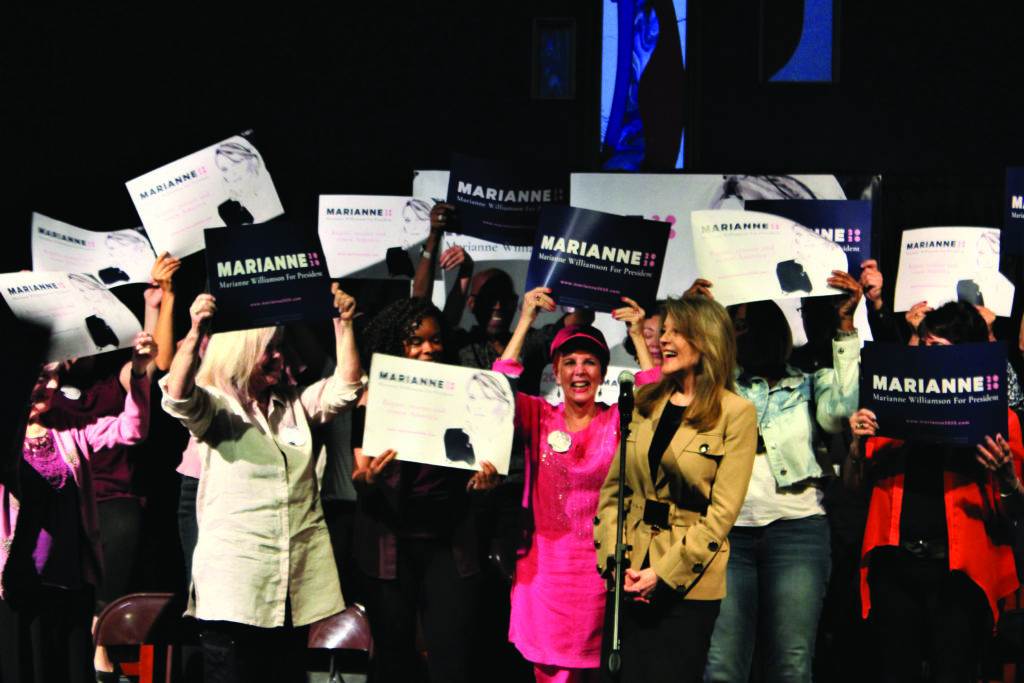
Rob Sidon is publisher and editor-in-chief of Common Ground.